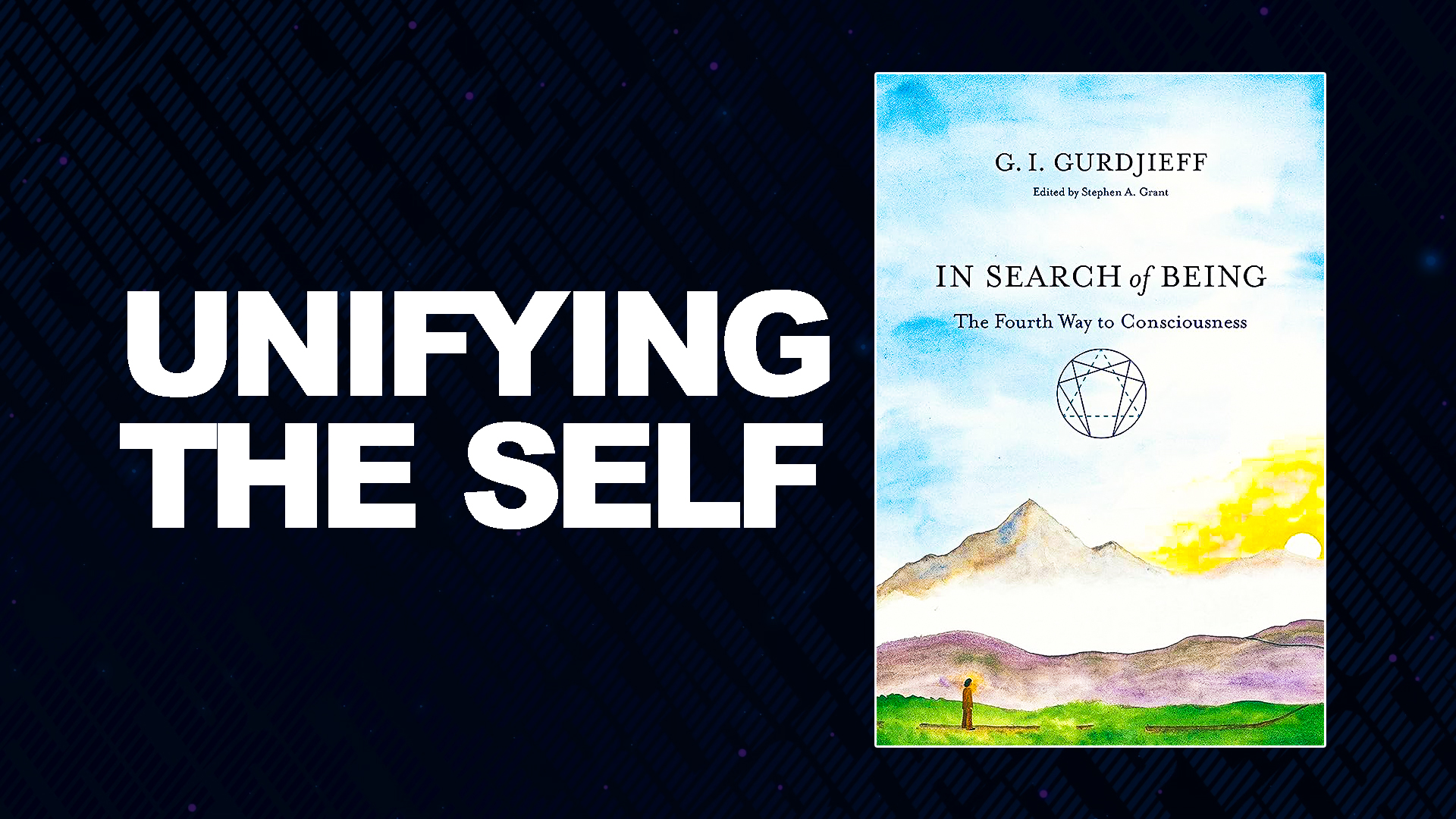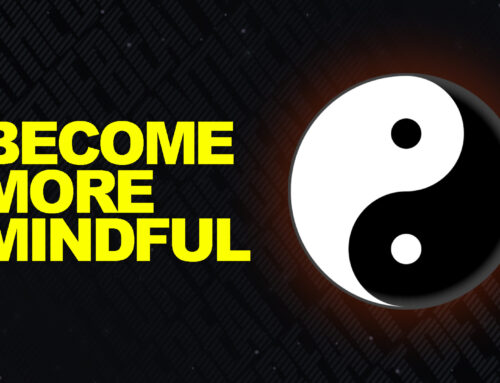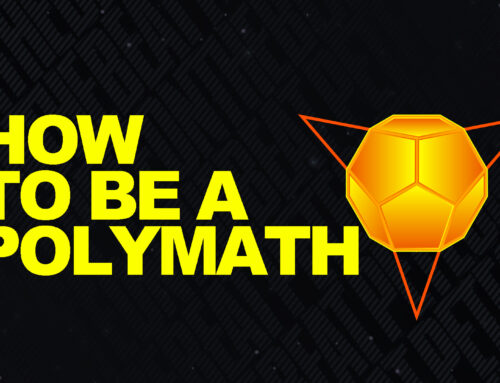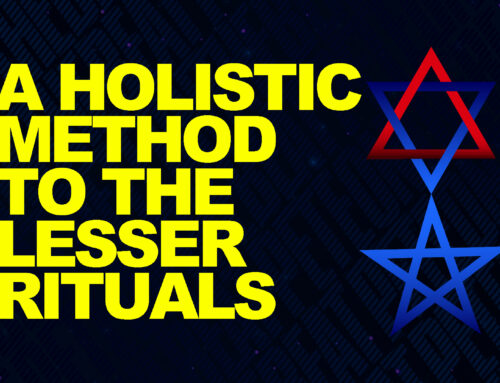Introduction
Subtitled the Fourth Way to Consciousness, In Search of Being inspires seekers to look for esoteric meanings by combining science and religion. Equating knowledge of reality to ‘true knowledge of being,’ the book has the roots of its methods in Antiquity. It teaches how to achieve liberation by distinguishing what is real from what isn’t. Impressed by how much it informs the modern Left-Hand Path, such as its common grounds with contemporary science, I’ll discuss a few ideas helpful to any seeker.
The Four Ways
Gurdjieff recognizes three traditional paths (or ways) toward self-transformation. Focusing on mastering the physical body, the first is the way of the fakir. The second is that of the monk, which concentrates on faith and religion. And the third way is the one of the yogi developing the mind.
Called ‘The Fourth Way,’ Gurdjieff’s approach requires working with all three. It integrates religion and science to explore the deeper parts of human nature. It views this can only be achieved when these collaborate. The Fourth Way aims to increase understanding, not based on obedience and faith but by awakening another intelligence and bringing a new conception of GOD.
Comment
I don’t know about you, but this resembles what we now call total self-development, mind-body-spirit, and even biohacking, especially considering that Gurdjieff utilized psychoactive substances. Let me know if you agree.
Ancient Science
Uniting the elements of forgotten knowledge, the Fourth Way is (also) called ‘ancient science.’ One reason is that it views the physical world similarly to modern physics. It also considers ‘real’ only that which could be measured and proved via controlled experiments. So apparently, The Fourth Way also has commonalities with Thelema. Also called Esoteric Christianity, the Fourth Way has two main goals.
- Understanding the human being’s place in the Cosmos and the meaning of human life on earth.
- To help one know and experience the reality of (both) finite and infinite worlds simultaneously.
Prayer and Intention
Gurdjieff notes that Christian liturgy represents a condensed course of science dealing with the universe and human beings. He also teaches that concentration and intention is the key to prayer. It really isn’t the mere repetition but being fully present and experiencing each word with your being. This also applies to prayer and affirmations you create for yourself. In fact, the author doesn’t view those as much different. Let me know if you agree.
Esoteric Christianity
In Search of Being defines most people as Christians who use different names and vastly misunderstand the religion. It also challenges the mainstream notion that Christianity emerged from the Hebrew and Greco-Roman religions.
“The Christian church is actually a school, although this has long been forgotten. Imagine a school where the teachers give lectures and perform explanatory demonstrations without even knowing that this is what they are doing and where the pupils or simply visitors think these lectures and demonstrations are nothing more than ceremonies and rituals. This is the Christian church of our times….”
“It was all taken ready-made from Egypt, although not from the historical Egypt that we are familiar with but from one we do not know. This Egypt occupied the same place but existed much earlier. (…) To say that this prehistoric Egypt was Christian before the birth of Christ is to recognize that its religion was based on the same principles and ideas that constitute true Christianity…”
p.117
How to be a Christian
To be a Christian, Gurdjieff explains, isn’t about a mere decision or preference. Nor is it based on your conditioning. Instead, it requires the actual ability to be one. This means being a master of yourself, achieving an inner ‘unification,’ and becoming what he defines as a ‘true individual.’ As stressed elsewhere, that’s reconciling all your little ‘yous’ so they don’t fight but serve the greater good.
Comment
If you think about it, like Yeheshua, Christ, or the cross is all about reconciling opposites. Also, if you read between the lines of some of Dion Fortune’s work, you’ll likely recognize that was what Jesus was teaching and (eventually) got killed for.
Essence and Personality
The Fourth way has two divisions of the human being. The first is on two main parts: essence and personality. The former is essential, whereas the latter isn’t.
Attributing to instincts and one’s inner child, essence, is one’s true self. It is what the real unified ‘I’ develops/emerges from. Attributing to all forms of external conditioning accumulated through one’s life, personality includes feelings created by imitation, impressions from learning, and anything that doesn’t (actually) belong to the person.
“A small child is what he really is, with no personality. He is essence, and his desires, tastes, and his likes, and dislikes, reflect his being such as it is. It is only when so-called “education” begins that personality begins to develop, formed partly by the intentional influences of other people and partially by the child’s involuntary imitation of them. In this formation, a great part is also played by the child’s “resistance” to those around him and attempts to hide from them something that is “his own” or “real”…”
“Essence represents the true nature of man, whereas personality is false…”
p.39
Gurdjieff explains that highly educated and cultured people in urban areas have well-developed personalities. Similarly, those closer to nature have grown an active essence in favor of their personalities.
Nevertheless, personality is crucial as it allows access to the tools and tactics for personal development and transformation. The key is to keep your essence growing while building a personality that supports and facilitates that.
The Four Bodies
Partially resembling the Qabalistic parts of the soul, The Fourth Way also recognizes four bodies of the human being.
- Physical or Carnal
- Natural or Astral
- Mental and Spiritual
- Divine or Causal.
The first is viewed as the carriage, the second as the horse, the third as the driver, and the fourth as the Master, pure consciousness. Not mentioning anything from going top to bottom, Gurdjieff considers each emerging from the previous, growing from lowest to the highest. While all are important, each is superior to those below. It also has complete control over them and access to realms they don’t. These loosely correspond to G’uph, Nephesh, Ruach, Neshamah, and Chia. On the contrary, Gurdjieff doesn’t accept that they are part of everyone.
“Some kind of similar divisions may be found in most schools of thought that acknowledge in man something more than the physical body. But almost all these teachings, while repeating in a recognizable form the divisions of the ancient doctrine, have nevertheless forgotten the most important thing of all, namely, that although the more refined bodies can be artificially cultivated under favorable internal and external conditions, no one posses them from birth…”(…)
“Ordinary man does not have these bodies or corresponding functions…””Only a person who possesses four fully developed bodies can be called ‘man’ in the full sense of the word…”
p. 43-44-47
Comment
Perhaps Gurdjieff’s crystalization and refinement may be similar to connecting with the higher parts of the soul in the more traditional systems. Let me know if you agree. Also, what’s your take on whether all people possess these from birth.
Inner Alchemy
“The development of the inner bodies of man is a material process analogous to the growth of the physical body. (…) To grow, a child must have good food and a healthy organism to prepare the material necessary for the growth of tissues. The same is necessary for the growth of the higher bodies…”
p.48-49
Elaborating on that, In Search of Being notes diet plays a crucial role in expanding one’s consciousness. Besides nutrition, the book also considers one’s informational diet, such as the air they breathe. Not getting impressions equals death. And the reason is that this is how nature transmits energy to us, sustaining our being. Besides that, having a proper diet with all three is the key. It doesn’t just make you live healthily; it also helps develop the higher bodies. When that is the case, one starts having unseen energy levels, as if tapping into a new resource.
Comment
IMHO, this is precisely what happens when you enter deep ketosis via proper nutrition and the OMAD plan. Instead of relying on snacking, the body taps into its reserves, converting them into sustained energy levels via beta-oxidation. For the record… The average person carries about forty thousand calories in fat deposits, lasting up to a month. On the other hand, the average human body can store no more than four hundred grams of carbs lasting for no more than 2 days. You do the math on your own. Similar miraculous benefits are recognized when one replaces junk media like news, porn, and influencers with content from value-creators and good books like this.
Self-Reflection
Like other Fourth Way Books, In Search of Being stresses humans are machines trapped in permanent sleep. Only through deep self-reflection and study can one understand something is wrong with their ‘machine’ and begin improving things. Self-observation is the foundation for initiating a change and getting the most out of life.
“In observing ourselves, we notice that self-observation itself brings about certain changes in our inner processes. We begin to understand that self-observation is an instrument of self-change, a means for awakening. By observing ourselves, we throw, as it were, a ray of light onto inner processes that, up to now, have worked in darkness. (…) Even a feeble light of consciousness is enough to completely transform the character of a process and to make many processes altogether impossible…”
p.157
The Power of Compounding
In Search of Being recommends taking small steps and using what we now call the power of compounding. As endorsed by scientifically backed best-sellers like Atomic and Habits and Tiny Habits, the best way to build habits and discipline isn’t through sheer willpower. In fact, that tends to doom one to defeat. Instead, The key is to break anything down into tiny steps or habits to frequently and effortlessly engage in; the more that happens, the more a habit is fixed, and the less challenging the initially difficult becomes.
“Today, we have an abnormal appetite to do things that are too big for us. We can never do these things. And this appetite keeps us from doing the small things we could do. We have to destroy this appetite and forget big things. We must make going against a small habit our aim…”
p. 158
Comment
Elsewhere, Gurdjieff stresses the importance of strong will. Yet, IMHO, that’s not so much about willpower as having a ‘powerful and clear intent toward an aim;’ similar to what N. Hill called ‘definite chief aim.’ The same you sustain and achieve through small steps and incremental progress. But that’s just my opinion. Feel free to let me know if you agree; also, if you’d be interested in diving into subjects like productivity.
- The Power of Mindfulness Meditation - May 1, 2024
- An Autobiography of Trauma Book Review - April 23, 2024
- Reflections on Being a Polymath - April 12, 2024






